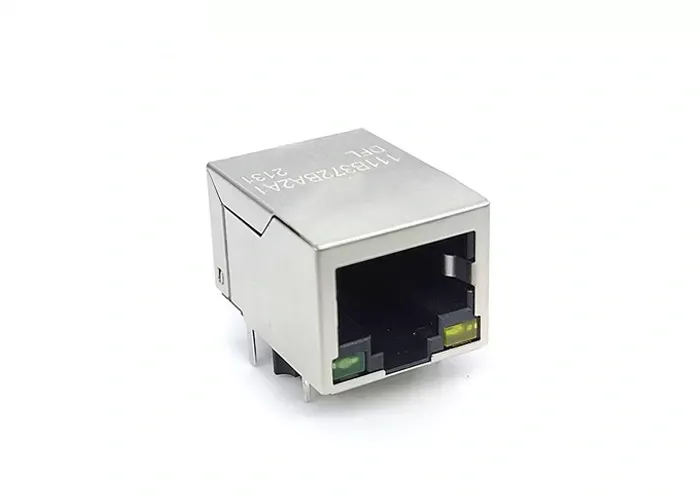How RJ45 Connectors Help Enable Electronic Health Records (EHR)
In the world of modern healthcare, the shift to digital systems has revolutionized how patient information is stored, accessed, and shared. Electronic Health Records (EHR) are central to this transformation, enabling healthcare professionals to manage patient data more efficiently and securely. But how do these digital systems work behind the scenes? A key component that makes it all possible is the RJ45 connector, a small but crucial part of the healthcare technology ecosystem. In this article, we’ll explain how RJ45 connectors contribute to the smooth functioning of EHR systems and why they are essential to the healthcare industry.
How RJ45 Connectors Support EHR Systems
For healthcare providers to deliver high-quality care, they need immediate access to accurate patient information. EHR systems store and manage this data, and the RJ45 connector plays a significant role in ensuring that information is transmitted quickly, securely, and reliably across the network.
Here’s how RJ45 connectors help power the healthcare networks that make EHR systems work:
- Ensuring Reliable Data Transfer
EHR systems house vast amounts of critical patient data—such as medical histories, lab results, and medication records—that healthcare providers need to access and update quickly. The RJ45 connector, as part of the Ethernet network, ensures that data flows smoothly between computers, servers, and other connected devices. A stable network connection is vital in healthcare, where every second counts, and the RJ45 connector helps prevent slowdowns or interruptions in data transfer that could impact patient care.
- Supporting High-Speed Internet for Large Data Transfers
Healthcare facilities often handle large files, like X-ray images or MRI scans, which need to be uploaded or accessed in real-time. RJ45 connectors support fast, high-speed Ethernet connections that allow for these large data files to move quickly and efficiently across the network. This high-speed capability ensures that healthcare professionals can retrieve and view critical information without delays, helping them make timely decisions about patient care.
- Connecting Medical Devices to EHR Systems
Modern healthcare relies on a range of connected medical devices that track patient vitals or record diagnostic data. Devices like heart monitors, blood pressure cuffs, and infusion pumps can send data directly to the EHR system. Thanks to RJ45 connectors, these medical devices are seamlessly integrated into the hospital or clinic's network, allowing healthcare workers to monitor patients in real-time and update records automatically, reducing the chance for human error and improving accuracy.
- Enabling Scalability in Healthcare Networks
As healthcare organizations grow, so does the amount of data they handle. RJ45 connectors make it easy for these networks to expand. By simply adding more devices to the network, healthcare providers can increase their data storage and processing capabilities. Whether it's adding more workstations in a busy hospital or integrating new devices into the system, RJ45 connectors ensure that the network infrastructure remains reliable and efficient, supporting the expansion of EHR systems as healthcare needs grow.
- Ensuring Secure Data Transmission
Protecting patient information is a top priority for healthcare organizations. RJ45 connectors, when used in Ethernet networks, help support secure data transmission. While the connectors themselves don’t encrypt data, they are an essential part of the network that supports security protocols, ensuring patient data stays safe from unauthorized access. This is crucial for complying with privacy regulations such as HIPAA (Health Insurance Portability and Accountability Act), which mandates the protection of patient data.
While the RJ45 connector may appear to be a simple piece of technology, it plays a crucial role in enabling the fast, secure, and reliable communication that modern healthcare systems depend on. By connecting devices and networks that power EHR systems, RJ45 connectors make it possible for healthcare providers to access real-time patient information, monitor medical devices, and transfer large amounts of data efficiently. Ultimately, they help ensure that the healthcare system runs smoothly, allowing healthcare professionals to provide better care and improve patient outcomes.
In short, the RJ45 connector is an unsung hero of the healthcare industry, helping to connect the digital tools and systems that support patient care. By enabling smooth data flows and supporting the growth of connected networks, it is a key enabler of the healthcare technologies that are transforming how we manage our health.
To find products and services more accurately, please try entering keywords for search.
For more product and service content, please contact us and send an email to sales@dimud.com.
We sincerely look forward to connecting with you!


